Disclosure: Meeple Mountain received a free copy of this product in exchange for an honest, unbiased review. This review is not intended to be an endorsement.
Jake Jarmel doesn’t believe in the flippant use of exclamation points. This we learn in an episode from the fifth season of Seinfeld. While Jerry and Kramer are setting up a sting operation for their suspicious sniffing accountant, Elaine is breaking up with her author boyfriend over his reluctance to add a bit of excitement to their relationship through the use of boisterous punctuation:
Elaine tries to take out her revenge on Jake when she edits his new book for Lippman Publishing by adding superfluous exclamation points where they don’t belong. Thus is the ongoing battle for expression through the use of excited punctuation.
I’ve learned a lot from Seinfeld—probably more than could be described as healthy. Mr. Jarmel is not necessarily wrong here. You’ve got to feel that exclamation point or it just won’t work. Elaine just wants him to feel it. Mr. Lippman wants to publish a good story.
Legends of Hellas is a cooperative small-box card game from Pierre Knockaert and Quined Games (Carnegie, Agra). A reimplementation of an earlier design (Escape Now!), Legends of Hellas puts players in the role of Greek heroes attempting to defeat a number of mythological monsters before the cards—and their chances—run out. The challenge is only amplified by the vow of silence under which players do battle.
When the dust settles, the Chimera falls, and the speech embargo melts away, one question remains. Does a game like Legends of Hellas warrant an exclamation point?
I pulled the lever on the machine…
Legends of Hellas boasts 61 Action cards, 10 Monster cards, and 5 wooden Hero discs. The rules present twelve scenarios of increasing difficulty for 1-5 heroes. Each scenario presents a number of starting Monsters and instructions for the introduction of even more Monsters, culminating in one or more Chimeras—Monsters consisting of multiple cards. Players must defeat all the Monsters before the Action cards disappear in order to claim victory.
Each Monster features two icons showing the Action cards that must be played against it in battle. In most cases, when five matching icons have been played—provided at least one of each icon has been played—the Monster falls.
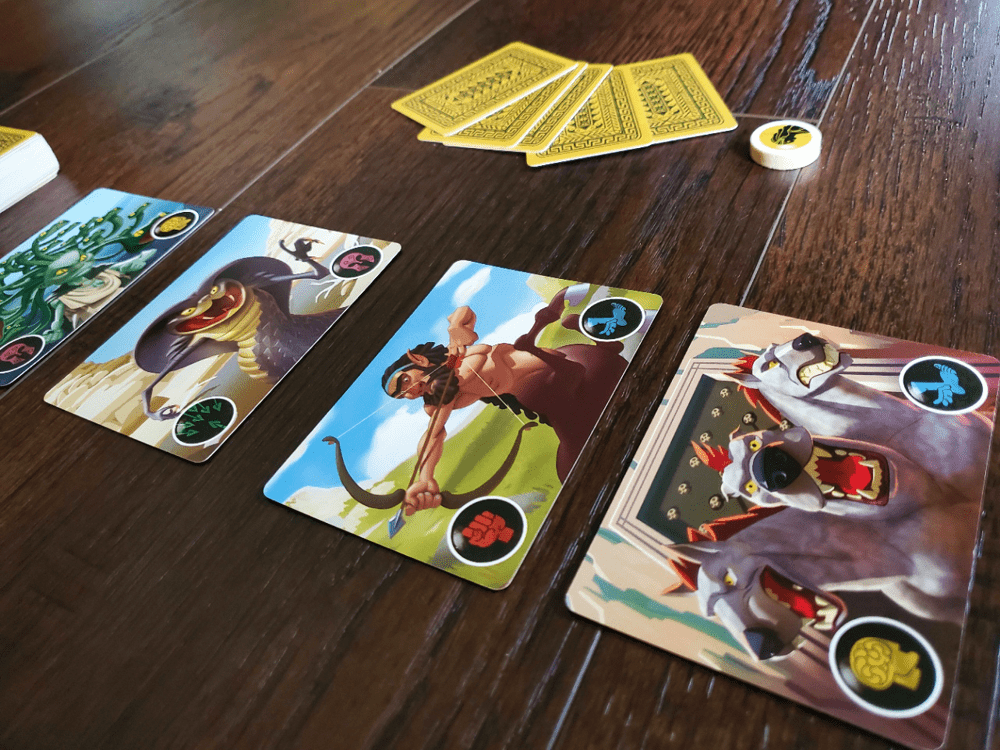
Players move their Hero discs from Monster to Monster to engage in battle. On a turn, players choose one of five possible actions: Play a card, Move, Draw cards, Pass cards to another hero, or Reorder the next five cards in the deck. The tension in decision-making comes from the fact that every action ultimately costs a card, either by playing one into battle or by discarding.
Each of the players’ Hero discs—which match the five colors of the icons on the Monster cards—also serves as a special ability token. Once in the game, each player may discard a random card to flip their token, serving as an attack of the matching color. The backside of the stickered token then shows a crack indicating the power has been used.
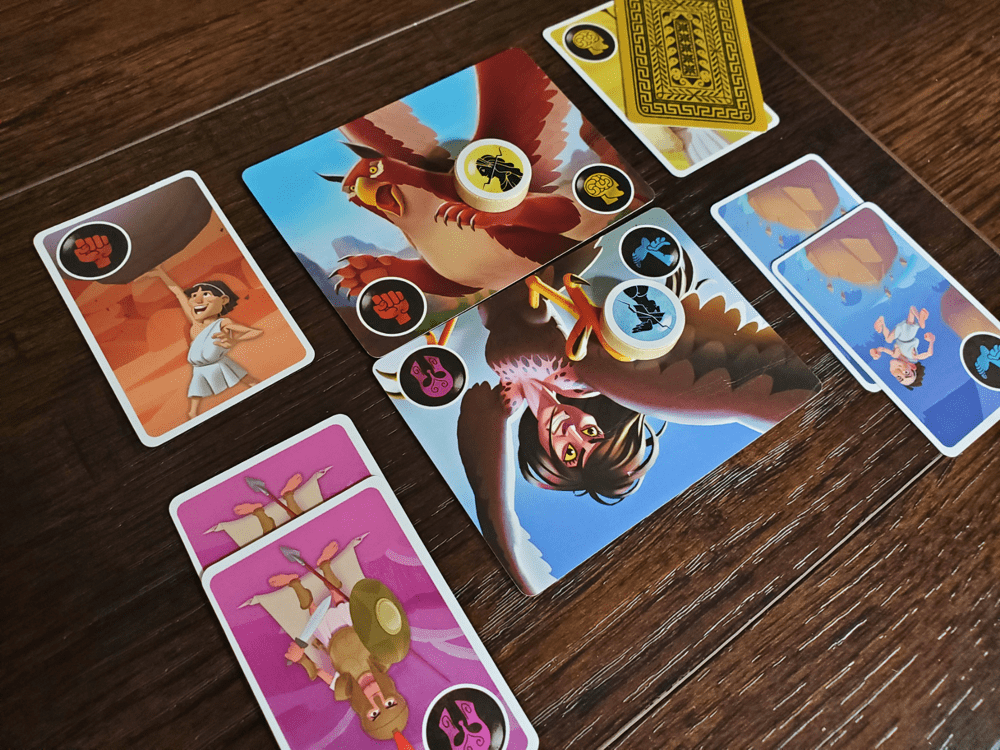
Legends of Hellas includes a sliding scale of difficulty through Divine Intervention cards, which are shuffled into the deck at the beginning of the game. These Intervention cards either serve as wilds or they can finish off a Monster in one fell swoop once each of its icons have been played. Players can face the scenarios in Human, Hero, or God mode based on the number of Intervention cards available.
Keep in mind that throughout the game players are not permitted to speak, adding that little touch of nervous energy that comes from wondering if Achilles over there is going to totally mess up Jason’s strategy. If in 61 cards, however, the Heroes are able to drop all the Monsters, the floodgates of speech open wide and folks are free to comment on the lessons of the day.
but the Clark Bar didn’t… come out!
Like Elaine, I really want to feel it for Legends of Hellas. The cover artwork from Loïc Billiau (Ark Nova, Spirit Island) is inviting and I love the idea of a small game providing big fun. The game’s interior art from Bartel Bruneel is a little more on the cutesy side, but it still works. The micro cards are not a hindrance, the stickered Hero discs are great. While unfurling the twelve-fold rule sheet I was alarmed, but those fears quickly subsided because the rules are well written and illustrated, and the whole backside consists of the game’s dozen scenarios. All this to say, the surface presentation had me primed to offer the coveted exclamation point.
 Unfortunately, my inner Jake Jarmel has taken the lead on this one.
Unfortunately, my inner Jake Jarmel has taken the lead on this one.
Legends of Hellas is certainly a tight design. There is little room for error in this deck of little cards. Without getting too analytical here, allow me a bit of room to do math on these 61 Actions. There are typically six Monsters in a scenario, each requiring 5 cards to defeat. That’s 30/61. Toss in a Chimera at the end requiring 8 cards and you’re at 38/61. The remaining 23 cards are chewed up in a hurry as you factor in the discard that accompanies every maneuver in the game—including drawing more cards. Even after a single play you realize that the cards are either in your favor or not. The Divine Interventions, which do grant wiggle room, merely serve to add a touch of interest to an otherwise foregone conclusion.
Most of the early scenarios are silently scripted in that there aren’t many real choices along the way to a nearly inevitable victory. Every chance you get, you play a card. The only other economical moves are drawing cards and possibly rearranging the deck. Moving is nothing but a burden and passing cards seems downright punishing.
Every move in the middle scenarios is similarly scripted, but the battle is more of a nail-biter due to the timed release of the Monsters. The final scenarios are downright challenging, but not necessarily satisfying. None of our defeats resulted in saying, “If only I had done ________ instead of ___________.” Instead, we found ourselves saying, “We were a few cards short,” or “There were no blue cards left to fight the Cerberus.” The game simply runs out.
Legends of Hellas feels more like a story than a game. It’s not much of a choose-your-own adventure story, though, because as you get looser with your choices, you are guaranteed to lose through the sheer mathematical force of Fate. Every trip to the table feels like an exercise in testing the generosity of the shuffle.
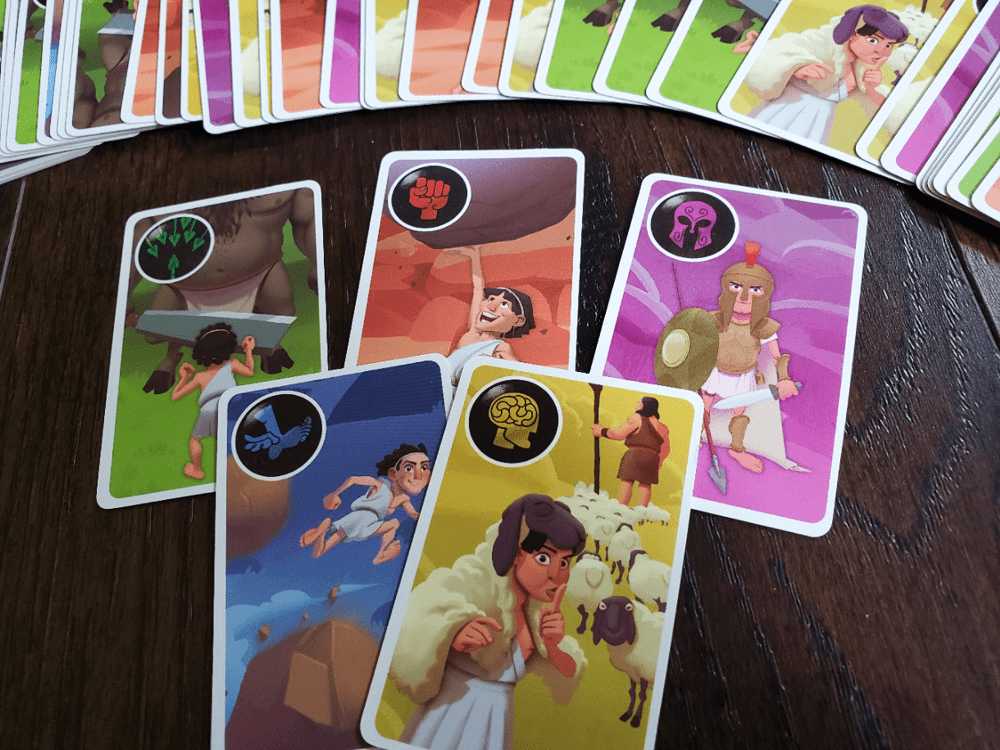 I can hear a potential cry of thematic integrity in response to my complaint. The Greek tales often include this strong sense of Fate, with only the whim and intervention of the gods bringing about a narrowly satisfying resolution. What would have become of Odysseus or Orestes without the active hand of Athena after all? Shouldn’t the game reflect that reality?
I can hear a potential cry of thematic integrity in response to my complaint. The Greek tales often include this strong sense of Fate, with only the whim and intervention of the gods bringing about a narrowly satisfying resolution. What would have become of Odysseus or Orestes without the active hand of Athena after all? Shouldn’t the game reflect that reality?
I’m not sure the thematic ties are enough to rescue this little box. After Odysseus set foot on Ithacan soil, would he have wanted to try again to see if he could best Fate out of a sense of fun—maybe with less help from Athena this time just to ramp up the difficulty? The brilliance of The Odyssey is the generosity of the shuffle crafted by Homer. Everything worked out just right—it couldn’t have worked any other way. It’s not a game to be played. It’s a story to be told.
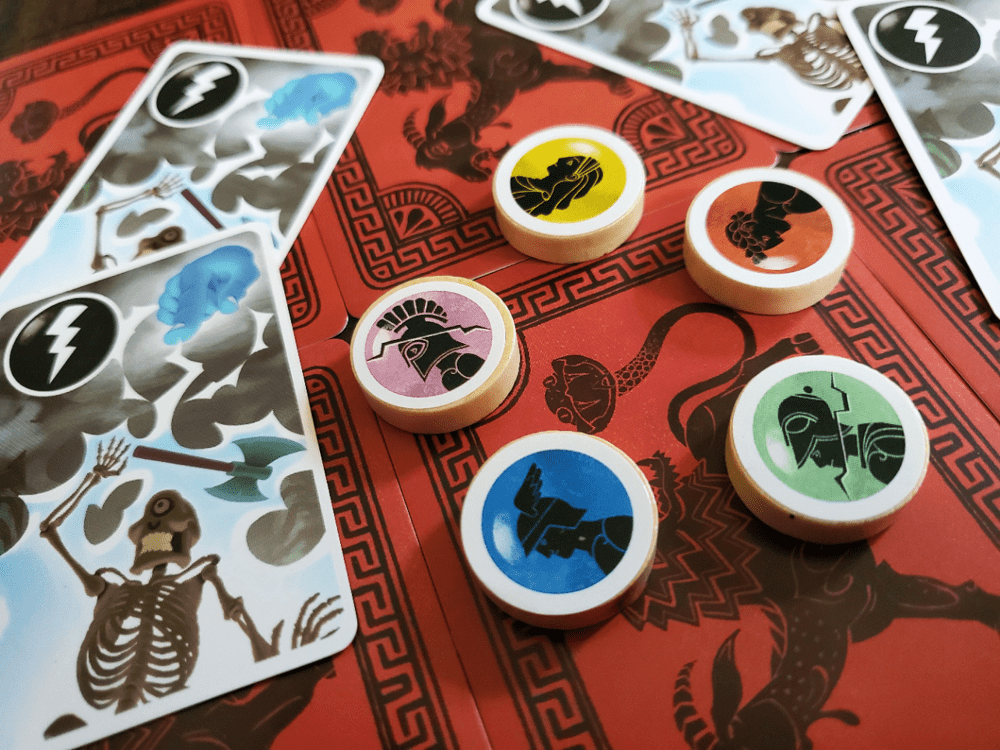
There’s obviously something to Legends of Hellas, but I really didn’t enjoy it. I won’t say it’s bad, because it’s very well put together. But it’s so precise that every move is either obvious or carries deadly consequences for the card count—or both. As the player count increases, the problems only become more exaggerated as everyone has to throw away cards for nearly everything they do.
Maybe I’m not enough of a (or is it an) hellenophile to see the right connections here. But despite my several attempts to work one in, I have nary an exclamation point to give for Legends of Hellas. I’m just not feeling it. Elaine would probably break up with me. But I suppose Mr. Lippman would still publish the story.


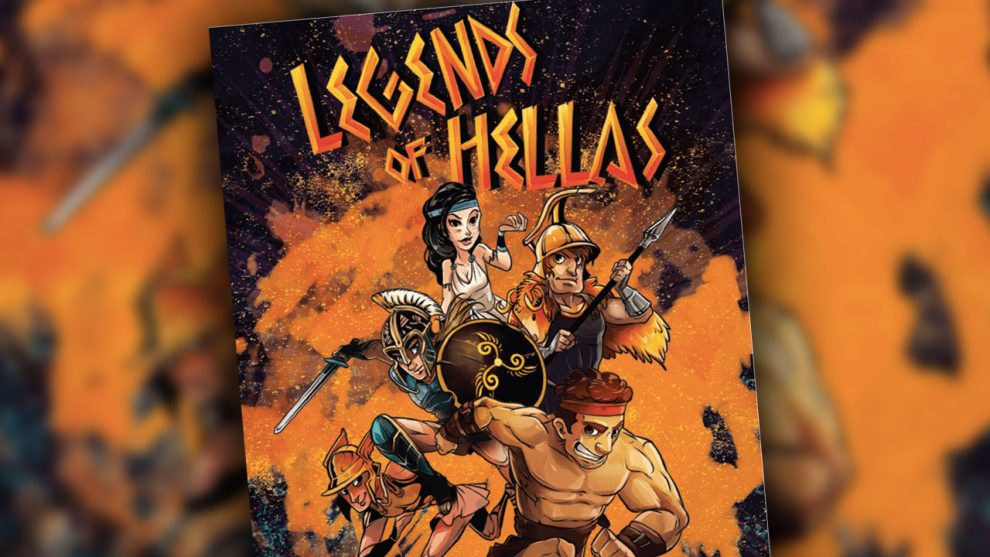








Add Comment